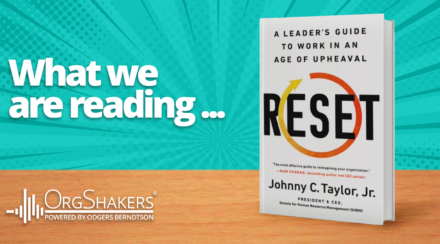Menu

Hustle Vs. Happiness: Helping Employees Hit the Right Balance
‘Hustle culture’ is a buzzword that’s become quite popular over the last year. With some dubbing it as ‘burnout culture’, it is the idea that you have to work extra hard and put in extra work to get recognised for promotions and opportunities at work – in short, you are always hustling.
Since the pandemic, employers have started to become more in-tune to helping their staff achieve a better work-life balance. However, the remaining prevalence of hustle culture suggests that there is still a way to go for employers to normalise happiness above hustling.
For instance, there has been a rise in hustle culture amongst the youngest generation of workers, partly to demonstrate how they reject this preconceived notion that Gen Z are prone to ‘quiet quitting’ (although, our previous article explains why this term is actually a misnomer). But by this logic, it seems that in order to successfully hustle, one must forgo personal time, boundaries, and essentially their happiness overall.
And yet, our own poll found a stark contrast to this conclusion, with 77% of respondents measuring their success by how happy they were, in comparison to just 11% stating they measured it based on how much they earned. So, while there seems to be a shift happening in favour of doing something that makes you happy, there is still this belief that working unpaid overtime and devoting yourself to your job is what you should be doing if you want to be successful.
This idea of being ‘always on’ and always hustling has been around for years – with the rise of Thatcherism and Yuppie culture in the 1980s came the normalisation of hard and constant work to contribute to your country and become a young, affluent person at the same time. But, rather ironically, those who partook and perpetuated this ideology are now, for the most part, measuring their success based on how happy they are. Recent data from Rest Less found that almost half of the self-employed workforce across the UK are over 50. This highlights how those who were once hustling like no tomorrow did, in fact, realise there was a tomorrow, and they wanted to be happy at work rather than hustling through it.
So, what we’re seeing here is a pattern of ‘hustling’ in the early stages of your career in order to be ‘happy’ later in life. And while this seems quite transactional, it raises the question: why shouldn’t employees get to be happy from the very beginning of their careers? Adhering to this old-fashioned idea of what work should be only perpetuates it more. Employers play a huge role in breaking this cycle of over-hustling, and this is rooted primarily in how they measure the commitment of an employee.
Hustle culture remains because employees are still led to believe that working more equates to being a better worker. When, the reality is, employers should be rewarding their teams based on the quality of their output, not the quantity of their input.
At the end of the day, people measure success on an individualised scale. Some people may thoroughly enjoy working overtime and throwing themselves into their work, and that is completely fine. Just as it is also fine to set and expect boundaries from your employer so that you can have a life outside of your job. And there is even a middle ground here, what some are calling a flexible hustle culture, where you can hustle here and have more time off there. But as an employer, it is key to remember that no matter how your employees define their success, the playing field for opportunities and promotions must have a set criterion. That way, employees are free to hustle where they see fit, but do not feel pressured to do so in order to get ahead.
If you would like to discuss how you can design and implement strategies for work-life balance and measuring quality of output, please get in touch with us here.



